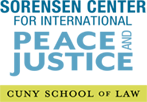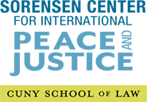Critical Voices: Wolfgang Kaleck and Edward Snowden on Surveillance, Privacy, and Civil Liberties
Date: September 21, 2020
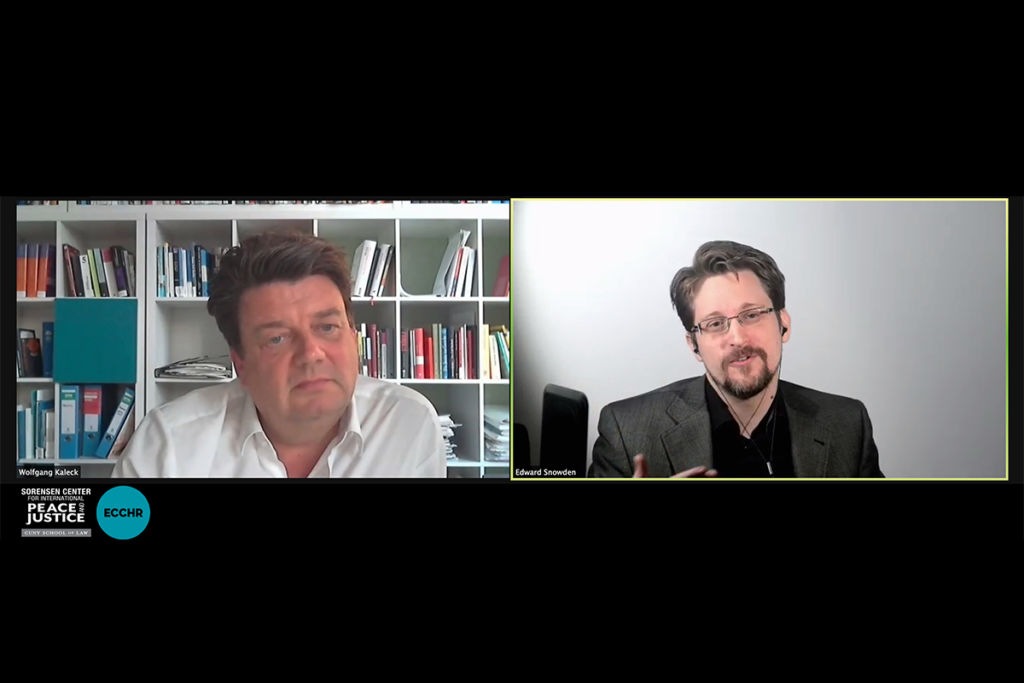
As authoritarianism rises and surveillance and emergency laws proliferate, the Sorensen Center for International Peace and Justice convened a discussion with the European Center for Constitutional and Human Rights on privacy and civil liberties. This “Critical Voices: From Local to Global” discussion featured 2020 Sorensen Center Scholar-in-Residence, Wolfgang Kaleck, and Edward Snowden.
The September 10 conversationcame on the heels of a recent U.S. Court of Appeals for the Ninth Circuit ruling that the massive data collection program exposed by Snowden violated the Foreign Intelligence Surveillance Act (FISA). Snowden, a systems engineer by training, served as an officer of the Central Intelligence Agency and worked as a contractor for the National Security Agency (NSA) until 2013 when he revealed the data collection program. Kaleck, who is the Founder and General Secretary of ECCHR and Snowden’s European lawyer, has said, “…there is no doubt that he had hoped his efforts would bring more political and legal changes than has been the case until now. That said, there is certainly evidence that the mass surveillance provided by the Snowden revelations is now firmly fixed in the public consciousness. People think of the time before and after Snowden. For all of us, use of the internet and social media has forever lost its innocence.”
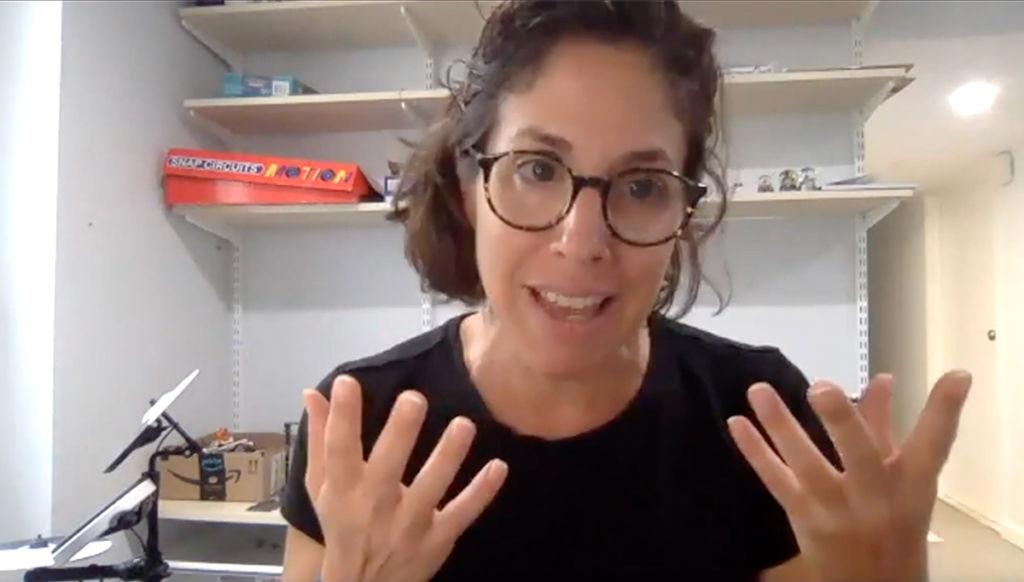
Professor Sarah Lamdan led a primer session for the CUNY Law community on September 9.
The intimate, off-the-record conversation delved into government and corporate surveillance during COVID-19 and was shaped by questions from the CUNY Law and ECCHR communities. During a primer session, CUNY Law Professor Sarah Lamdan provided an overview of how U.S. courts have dealt with surveillance programs after Snowden’s revelations, includingU.S. v. Moalin(9th Cir 2020) which concluded that the NSA’s bulk collection of metadata violates FISA. Like the ACLU v. Clapper (2nd Cir 2015)opinion, this month’s 9th Circuit decision stops short of ruling that the data collection is unconstitutional. The 9th Circuit court did, however, say that the collection of metadata is a search, rejecting the Department of Justice’s third-party doctrine arguments. Yulia Marshak ‘23 described the discussion and primer as incredibly interesting and enlightening. “It was surreal to have this opportunity to hear Edward Snowden speak with such detail and eloquence on this multifaceted topic,” Marshak said. “I also appreciated Mr. Kaleck’s directness and perspectives.”
Following the discussion with Snowden, Kaleck joined members of the CUNY Law community for an informal reception where he answered questions about legal venues, the application of international law, and being Snowden’s lawyer. Regarding Snowden, Kaleck has said, “It isn’t necessary to put [Snowden] on a stage and call him a hero. I would rather bring him down to earth and say, look what one human being can do, and continue to live. And the story is not over. Everyone has to make the choice: how do I want to live my life? I’m not saying everyone should follow in Snowden’s footsteps. But all of us can take more risk, in a way that’s appropriate to our own lives.”
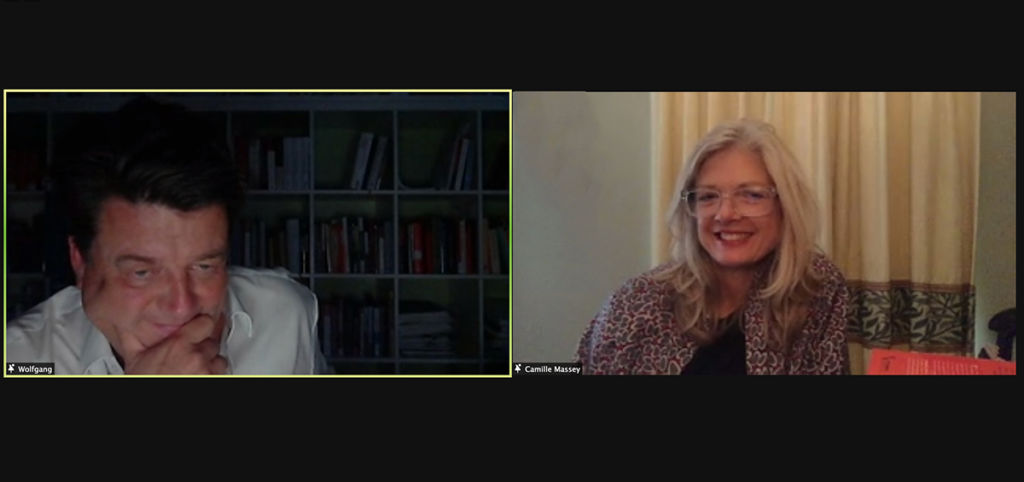
Sorensen Center Founding Executive Director Camille Massey moderated a reception with students and 2020 Scholar-in-Residence Wolfgang Kaleck.
The Sorensen Center’s Founding Executive Director, Camille Massey, said, “The Sorensen Center has been fortunate to have international lawyers as courageous as Wolfgang Kaleck and Maina Kiai during these times. Their experience with authoritarian regimes, strategic litigation, and movement building is invaluable.” The Center’s “Critical Voices: From Local to Global” speaker series and Scholar-in-Residence program feature extraordinary leaders, including accomplished international legal scholars and practitioners. At this semester’s first “Critical Voices” discussion, 2019 Scholar-in-Residence and a current non-resident Scholar, Maina Kiai, discussed racial justice, movement building, and local empowerment.
The Sorensen Center fosters the legacy of Ted Sorensen and works from local to global, training social justice lawyers to protect rights of those affected by instability, conflict, and repression.
